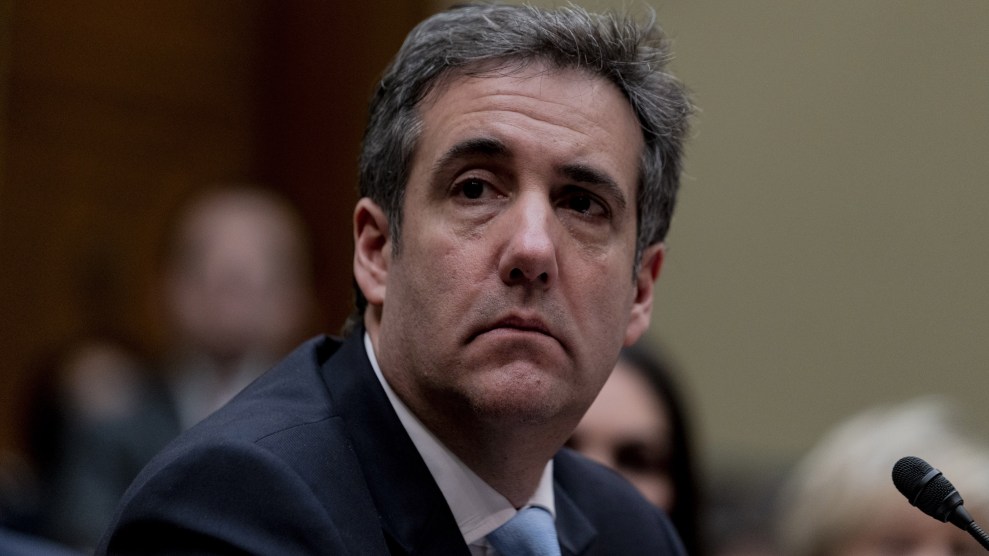
Douglas Christian/ZUMA
President Donald Trump might have avoided his falling out with his former personal lawyer, Michael Cohen, had it not been for lapses in communication, the New York Times reports.
According to interviews and communications obtained by the paper, Cohen’s loyalty to Trump began to flag after the president’s legal team curbed communication with Cohen and a legal adviser, Robert Costello. Cohen was still reportedly seeking a way to avoid turning on his former boss, even after FBI raids of Cohen’s home, hotel, and office. But Trump’s lead attorney, Rudy Giuliani, didn’t respond to overtures from Costello, in part because he says he did not want to do anything that could be perceived as witness tampering.
The lack of communication began to take a toll on Cohen, who initially stayed on Trump’s side but grew increasingly anxious, particularly after the administration did not commit to offering a presidential pardon should he need one.
“It seemed like an unfortunate but sensible decision,” Costello, who had advised Cohen but not been formally retained, told the Times of the Trump team’s lack of communication with Cohen. “The more I look back at it, the more I wonder if it was inevitable that Michael was going to crack.”
Costello texted Giuliani in June, letting him know that Cohen needed some type of reassurance.
“Basically he needs a little loving and respect booster,” Costello wrote in a text to Giuliani. “He is not thinking clearly because he feels abandoned.”
Cohen never got the “respect booster” he sought in the case against him about hush money paid to adult film actress Stormy Daniels. He turned on his old boss, calling him a “racist,” “con man,” and “cheat,” during congressional testimony. He alleged that behind closed doors, Trump often said disparaging things about black people, and he said the president used money from his foundation to purchase a painting of himself.












